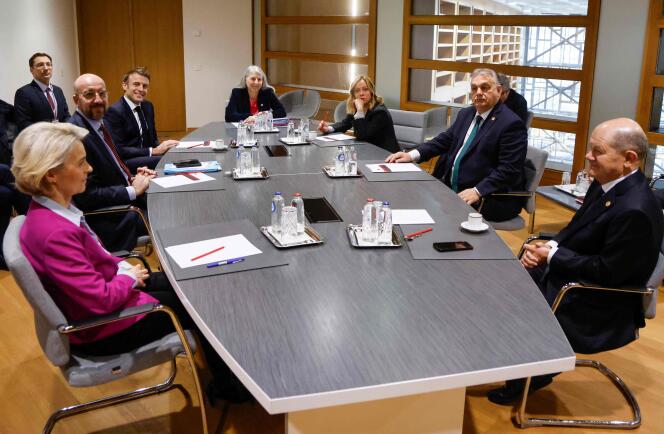


The European Union and Ukrainian President Volodymyr Zelensky had feared the worst: The persistent obstruction by Hungarian Prime Minister Viktor Orban against the EU's massive aid package for Kyiv, at a time when the US Congress has continued to tear itself apart over funding support for Kyiv. On Thursday, February 1, against all expectations, the 27 EU member states managed – in a matter of minutes – to get the nationalist leader to back down and activate the €50 billion aid package that had been promised to Kyiv, set to be distributed over four years.
It was barely 11:26 am when European Council President Charles Michel announced the news: "We have a deal," he wrote on X. "This locks in steadfast, long-term, predictable funding for Ukraine." In order to reach this compromise, Michel had called an early morning meeting with Orban, French President Emmanuel Macron, German Chancellor Olaf Scholz, Italian Prime Minister Giorgia Meloni and European Commission President Ursula von der Leyen.
The Hungarian prime minister, while repeating his criticism of the support given to Ukraine – he has called for a ceasefire between Kyiv and Moscow and for peace talks – eventually agreed to support the other 26 member states. In return, he secured a commitment for regular high-level debates on the implementation of these funds. While Budapest has recently demanded an annual review over these funds, subject to a unanimous vote, the agreement reached allows for the possibility of asking the Commission to propose a budget review "if it is needed, within two years." "No gifts were made to him," asserted the French president at the end of the negotiations.
It's a relief for Ukraine. Zelensky thanked EU leaders for establishing the support mechanism for Ukraine. "Europe demonstrated the exact type of unity that is required. All 27 EU countries acted together," he stated on X. "Continued EU financial support for Ukraine will strengthen long-term economic and financial stability, which is no less important than military assistance and sanctions pressure on Russia."
In March, following the green light to the aid package that is expected from the European Parliament at the end of February, the 27 member states hope to be in a position to make the first payments to Kyiv. This would represent an unprecedented level of aid for an EU candidate country with which accession negotiations have not yet begun. "Russia cannot count on any fatigue from Europeans in their support for Ukraine," said Macron.
You have 65% of this article left to read. The rest is for subscribers only.
